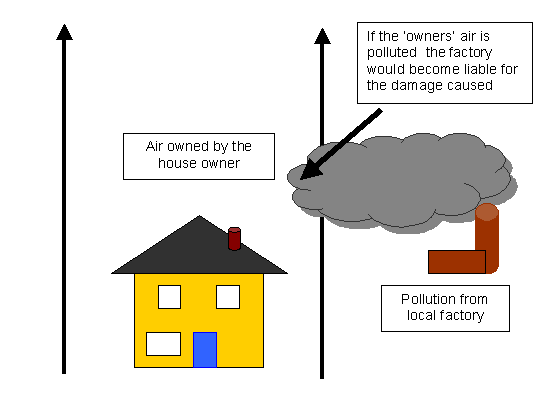Law Class
To: Jindal Global University; Commentary on Environment
for: October 30, 2013.
J.V. Siry, Rollins College; contribution:
"China has much reason to envy India for its independent judiciary."
Luce, In Spite of the Gods, p. 92.
"Justice Paul Finn of Australia describes the fiduciary duty of government as inevitable when a nation's political convictions embrace the 'inexorable logic of popular sovereignty.' "
Nature's Trust, p. 128.
Abrupt climate change due to global warming from increased heat trapping gas emissions, deforestation and land-use changes that disrupt vegetation can be addressed in ways that create local and regional jobs, employ existing technology, and enable populations to affordably adjust to rapidly changing conditions. Some authors have argued that this is the greatest single challenge to our civilization and how nations, cities and individuals address the threats involved with climate change will be a test of our dedication to justice, ecological health and fairness among the economically disadvantaged people who are harmed by industrial pollution today.
The public trust doctrine is but one emerging legal precedent that has and can be used to judicially address the emerging threats from water and air pollution that accompany global warming. The judicial ideal that dates back to Roman jurisprudence and later codified in the Justinian code and then reformulated into the English common law. The ideal covers the protection of a perpetual public or common interest in clean water and adequate water flow, despite private use and public access to navigable and other shared waterways.
A. worn out dicta and overlapping matters of concern, ignore heritage.
A.1 conventional approaches in light of new science fail ( endocrine mimicry & interference ).
A.2 when problems in nature combine more acute damage may ensue form a combination of direct (proven) and indirect (hard to prove) causes.
A2.1 the many small legal habits contributing to a huge illegal harm.
"climate . . . as the paramount emergency. . . . the U.S. government sits idle in response to the greatest threat humanity has ever faced."
Nature's Trust, pp. 342 & 344.
A2.2 the pursuit of self-interest that leads to common losses:
2.2a floods, flooding downstream due to upstream causes
2.2b air pollution, the dispersal of down-wind impacts
B. Nature's Trust, Mary Christina Wood's radical critique of environmental law.
"Boundary-based governance perpetuates a fictional and obsolete assumption that all ecology can be carved up and divided among sovereigns."
"Nations depart from these natural laws their individual and collective peril."
p. 208.
C. Conservation is now more urgent than ever before and defense of adaptive management is one appropriate means of anticipating unexpected consequences from ecological disruption, water scarcity, resource extraction, air pollution, and climate change.
Mary Christina Wood's topics:
1.
"Nature's Trust characterizes global environmental syndromes as matters of property law in which a set of discernible rules can promote a common, civilized plan of asset protection – even in a world governed by multiple sovereigns with fragmented jurisdictions over the planet."
p. 209.
2.
"As Peter Brown explains, . . . . Citizens of the United States and other western democracies now face a dangerous transference of power from the people to corporations, and considerable political introspection will prove necessary to set democracy back on track. The progression of the body politic toward an undaunted democratic destiny finds a bright beacon in the public trust principle."
p. 129.
The public trust (doctrine) is
• "a fundamental attribute of sovereignty"
• "a constitutive principle that government cannot shed."
p. 129.
Supreme Court of India decision Reliance Natural Resources v. Reliance Industries Ltd.[ 7 S.C.C. 129 ] (India 2010).
"The concept of people as a nation does not include just the living; it includes those who are unborn and waiting to be instantiated. Conservation of resources, especially scarce ones, is both a matter of efficient use to alleviate the suffering of the living and also of ensuring that such use does not lead to diminishment of the prospects of their use by future generations."
p. 130.
"Historically, and across the globe, predatory forms of capitalism seem to organize themselves, first and foremost, around the extractive industries that seek to exploit the vast, but exhaustible, natural resources. Water, forests, minerals and oil–they are all being privatized; and not yet satisfied, the voices that speak for predatory capitalism seek more."
p. 143.
"The Supreme Court of India, for example, directly underscored this role [government's duty to protect the commonwealth] when it declared a public trust over that country's natural gas. In language that flips the free-market philosophy on its head, the Court explained that the people confer power to the state to ensure equitable and non-harmful use of their common natural resources. It warned that industry-state collusions lead to the 'evisceration of the [government's] moral authority.' Emphasizing that strong state institutions remain necessary to to manage natural resources and that government must 'always be watchful that [corporations] do not take over the essential functions of the State,' the Court's statements underscore a commonality among citizens worldwide: no matter what the national context, government's retreat from environmental responsibility affronts the people's reserved sovereignty and their individual liberty to live free of ecological harm."
p. 275.
"As the legal commentator Blackstone recognized long ago, 'th[e] law of nature. . . is of course superior in obligation to every other. It is binding over all the globe in all countries, and at all times: no human laws are of any validity, if contrary to this."
p. 209.
Gandhi's salt-march to the sea; public trust and civil disobedience
p. 345-46.
John Locke, "the peace, safety, and public good of all the people."
pp. 128-129.
Beyond Borders:
"The boundary approach creates two obvious problems. First some planetary resources–like oceans and atmosphere–cannot be divided. These indivisible assets tempt a free-for-all and race-to-exploit behavior among nations. Dying oceans, overfished marine stocks, and polluted atmosphere signify the colossal failure of nations to organize respective ecological obligations into one coherent global framework."
"As to bounded assets, the focus on territorial sovereignty fails to characterize any duties flowing to nations and citizens located outside domestic national borders."
"The problem has always been one of externalities: economic benefits accrue to the polluter and citizens of one nation, while significant costs of such pollution fall to citizens of other nations."
p. 208.
Externalities
What are externalities?
The above diagram:Boundary based law reveals the limitations of traditional property rights given what we know scientifically about particulate and aerosol types of air pollution. Imagine the vertical arrows are property boundaries and the angled arrow pointing down is a display of cross-boundary or transboundary pollution.
2. damages – usually direct consequences leading to a calculable harm; But there are also less than calculable costs such as in the Bhopal disaster that courts are asked –based on the evidence– to determine when faced with an adversarial controversy. The remedy is usually a payment from the perpetrator to the affected party or groups.
3. externality – the unseen, and thus unaccounted for, costs and benefits in any economically functional financial system of commercial responsibility or corporate arrangements.
Sources:
Mary Christina Wood, Nature's Trust:
Environmental Law for a New Ecological Age
Cambridge: Cambridge University Press, 2014.
India; Supreme Court decision
Reliance Natural Resources v. Reliance Industries Ltd.[ 7 S.C.C. 129 ] (India, 7 May 2010). http://www.indiankanoon.org/doc/1070490/
India
Central Government Act
Article 39(b) in The Constitution Of India 1949
(b) that the ownership and control of the material resources of the community are so distributed as best to subserve the common good;
http://www.indiankanoon.org/doc/1200546/
International Environmental Law and Policy, Salzman, Duke University.
From the description of the book's focus on the website:
Global environmental problems are real and urgent; their resolution will require creative and responsible thought and action from many different disciplines, not the least of which is the law. The complexity of global environmental problems is magnified further when the needs of the poor are taken into account. Alleviating poverty on a global scale is as urgent in its own right as is protection of the global environment.
For international policymakers, the twin goals of environmental protection and poverty alleviation are joined rhetorically at least in the concept of sustainable development. In this simple formulation, we see the massive challenge that awaits us in the 21st century: how to alleviate poverty and maintain a high quality of life, while staying within the bounds of an ecologically limited and fragile biosphere. We hope this textbook will inspire both professors and students to join us in the search for how international law can help to meet this challenge.
Methods
Professor R. Pakanati.
Jindal Global University
LECTURE 10: International environmental law and organisations
AIMS
• To appreciate the impact of international law on the protection of the environment.
• To understand the measures which are available to ensure compliance with environmental protection provisions.
• To understand the role of international environmental regimes and organisations.
OBJECTIVES
On completion of this lecture/seminar students should be able to:
• Appreciate the remit of international law and organisations in matters of environmental protection.
• Outline the role and liability of the state in such matters.
• Outline mechanisms of enforcement.
OVERVIEW
Perhaps the most ‘international’ issue of all is the protection of the environment which truly transcends national borders and requires global cooperation. For this reason, international law places responsibility on individual states to protect against environmental damage and to take responsibility for the actions of their citizens. This involves international agreements which are often difficult to achieve and which may generate conflict between the interests of individual states.
READING
Malcolm Shaw, International Law, (Chapter 15) and
Kelly Kate Pease, International Organizations (Chapter 8)
TUTORIAL QUESTIONS: International Environmental Law
1. What are the particular issues facing the international community in relation to the protection of the environment?
2. How would you describe the responsibility of individual states for the protection of the environment?
3. It has been argued that such liability is strict - to what extent is this view justified?
4. Is the state liable for environmental damage caused by its citizens?
5. Outline how international law sought to address the depletion of the ozone layer.
6. How does international law define an ‘international watercourse’?
7. How does international law define an ‘ultra-hazardous activity’?
8. Who is liable for damage caused by accidental oil spillage from ships?
Backgrounds
By nature we mean the totality of non created, or self-maintaining features of the land, air and water that sustain life on earth; this includes human civilization.
subserve means to help to further or promote something.
Legal restrictions on estuaries in US
Madhya Pradesh Court ruling in Bhopal disaster: http://www.indianexpress.com/news/bhopal-tragedy-court-orders-issuance-of-summons-to-dow-chemicals/1145998/


